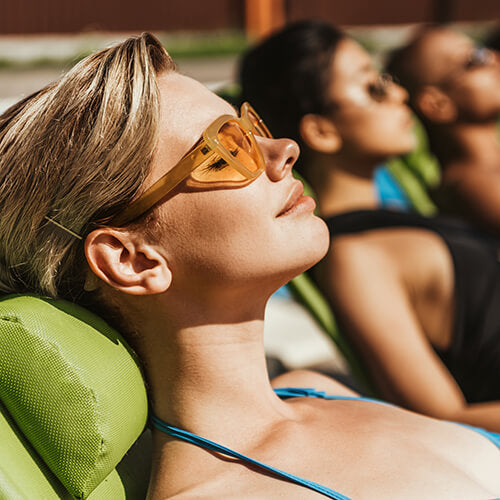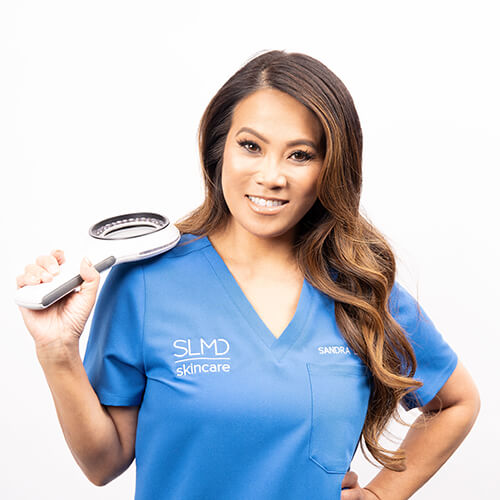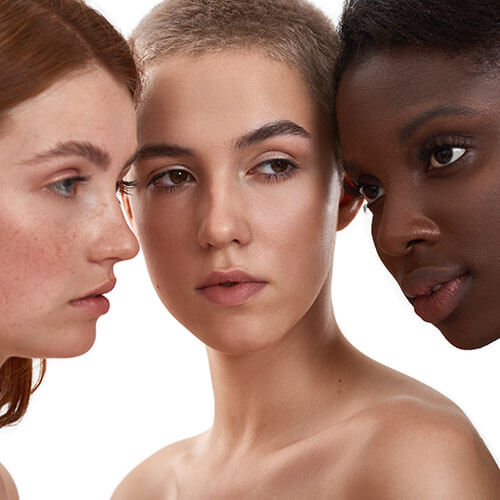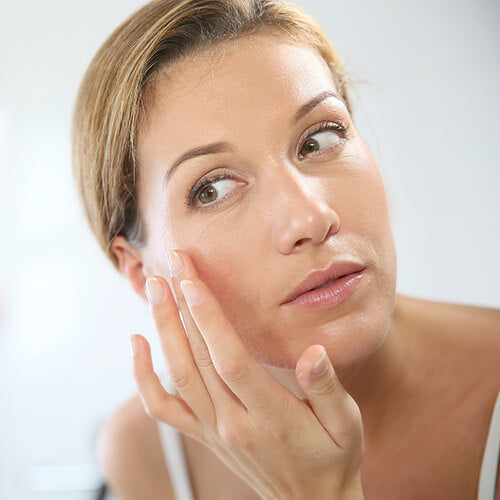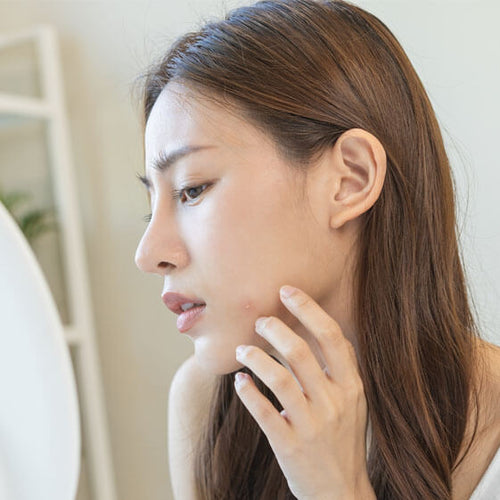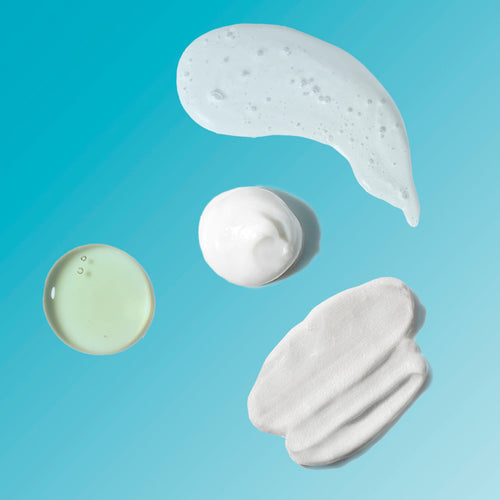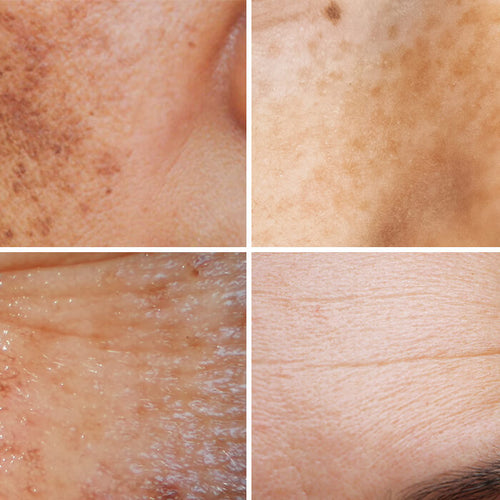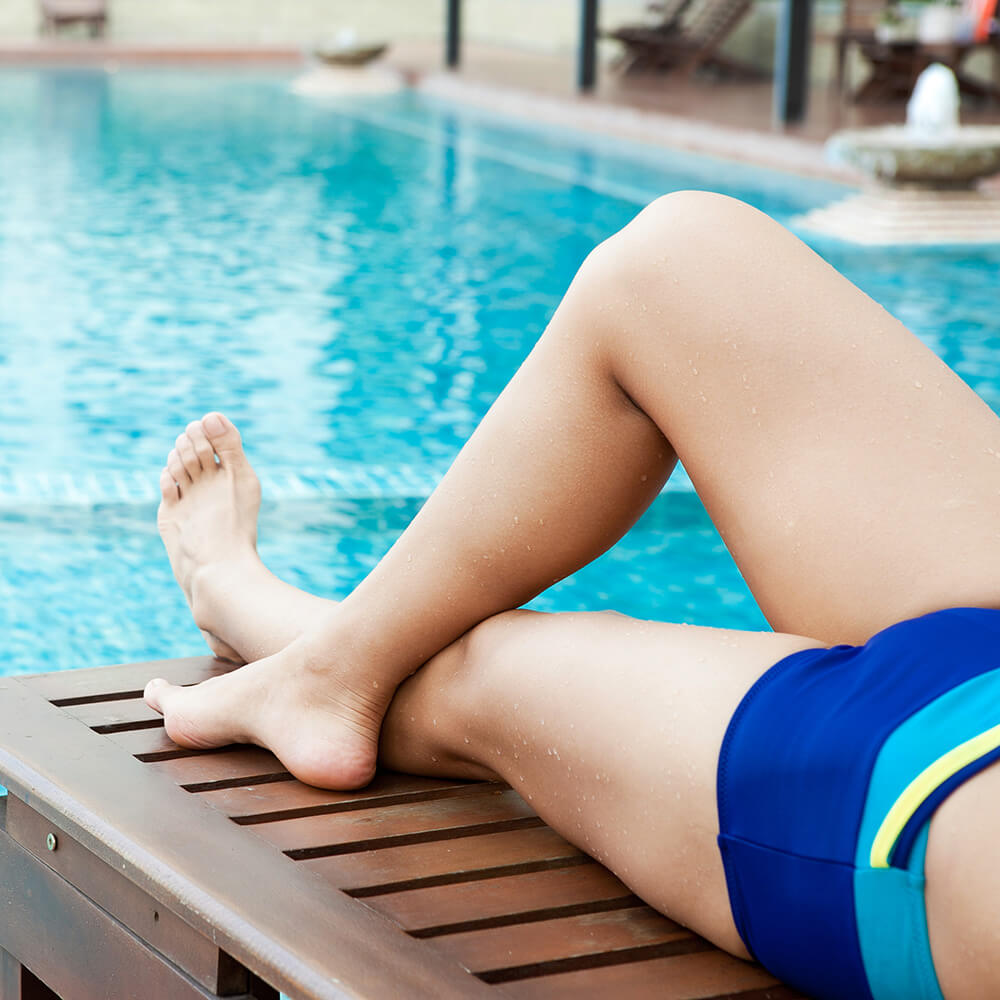
Why You Need to Wear Sunscreen Regardless of the Weather
Think you can skip the sunscreen because it's cloudy, or cold — or you're hanging on the couch? Unless you live in a cave, think again.
Published:
3 minute read
We all know that wearing sunscreen in the summertime is a must. But what about when the sun’s not shining — or when you’re planning on spending your day inside? Sorry, but you’re not off the hook, says our founder, dermatologist Sandra Lee, MD (aka Dr. Pimple Popper).
We’ve talked before about the types of UV radiation and what kind of damage it can do to your skin. The net net: including sunscreen in your daily regimen is super important for your skin’s health. You’re probably aware of the link between sunlight and skin cancers, but beyond this major health risk, sunlight also causes damage to skin that can reduce elasticity, create hyperpigmentation, and contribute to fine lines and wrinkles.
In other words, excessive sun exposure without the right protection damages your skin at both the structural and cellular level. Remember, the effects of UV radiation are cumulative — meaning it’s not just about that one summer day you fried your skin, but the day-in, day-out exposure over a lifetime. Here, we highlight why you don’t get a free pass from wearing SPF, no matter where you spend your day, or what the weather may be.
Do I still need to wear sunscreen…
When it’s cloudy out
If it’s daytime — even if the sun isn’t shining — UV rays are actively filtering through the clouds. Fun fact: the water droplets that make up clouds partially scatter those rays, reflecting some of them back into space. So the amount of UV radiation reaching the earth on a cloudy day depends on how thick those clouds are.
When the cloud cover is light, it’s estimated that up to 80% of UV rays are still penetrating through — so wearing sunscreen is still essential for skin protection. The thicker the cloud cover, the less chance you have of getting sunburned, since the intensity of UVB rays is reduced. But UVA rays, which contribute to long-term skin damage, are still going strong when it’s cloudy outside.
Surprisingly, studies show that there are even atmospheric conditions when UV rays can reflect off the edges of clouds, which makes them even more powerful than when the sun is beaming directly down on your skin.
During cold weather
We’ve come to associate cooler temperatures with decreased UV intensity, but that’s not exactly true. During the winter, we’re less likely to get sunburned not because it’s colder outside, but because fewer UVB rays are hitting the earth due to its tilt away from the sun. And yes: this is basically the same reason why the sun is more intense at the equator than at the poles, and more powerful at noon.
Regardless of these facts, it’s still possible to get a sunburn in the wintertime, especially if you’re out in the snow, which reflects sunlight. In those conditions, you’re essentially being hit twice with UV radiation: once from the sun, and again (though a bit less intensely) as those rays bounce off the snow. This effect is magnified at higher elevations, since there is less atmosphere to filter UV rays before they hit the earth. And remember: UVA rays are always present — another reason why wearing SPF while you’re skiing or snowboarding is a must.
When I’m staying indoors
This is one of the biggest misconceptions out there, says Dr. Lee. It stems from the belief that if the sun isn’t directly hitting your skin, there’s no damage being done. But unless you live and work in a windowless, pitch-black box, you’re being exposed to ultraviolet radiation.
UVB rays cannot penetrate glass, but UVA rays can — which means they’re reaching your skin when you’re inside and when you’re in a car. Again, it’s the cumulative effect over time that really matters here.
Another important consideration is simple human nature: getting out of the habit of applying your daily sunscreen just because you’re not planning to set foot outside isn’t a good long-term strategy. It’s easy to get lax in your routine — and easy to forget that you didn’t apply sunscreen when your bestie invites you for an impromptu excursion.
Simplify your routine with a moisturizer and broad spectrum sunscreen combo that’s lightweight enough for even oily or acne-prone skin: SLMD Dual Defender SPF 30.

Dr. Lee's Last Word
If there’s one thing I can convince you to do every single day, it’s to wear sunscreen. As a board-certified dermatologist, I see the damage that the environment can do to our skin, whether that’s in the form of premature aging or even cancer. I know that you may not like the way traditional sunscreen looks or feels on your skin, which makes applying it a challenge.







